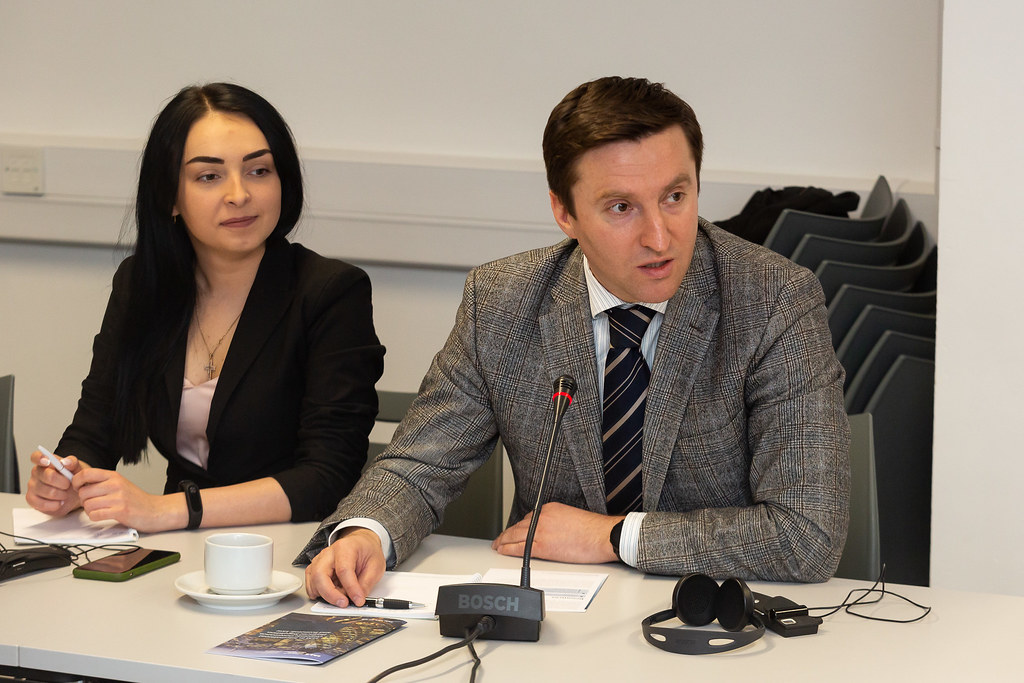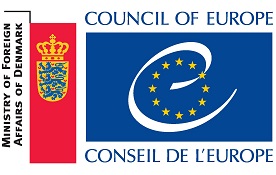On 1-2 May 2019 the representatives of the Free Legal Aid (FLA) system in Ukraine, the National Bar Association (NBA) and civil society were studying the system of legal aid quality assurance in England and Wales. The study visit to London was organised in the framework of the Council of Europe Project “Continued support to the criminal justice reform in Ukraine” funded by the Government of Denmark.
The mechanism of the quality assurance in England and Wales is similar to the one in Scotland (with which the representatives of the FLA and NBA got acquainted during the study visit last year), and is based on the model of the “peer review”.
“Peer review” is an evaluation system, in which the panel of independent experienced lawyers assesses the quality of work of other lawyers in compliance with the quality criteria and the operation level agreed with the professional community. According to the Council of Europe international experts professors Alan Paterson and Avrom Sherr, the other mechanisms that exist worldwide – clients’ cases processing, frequent recertification of the lawyers – are not as impactful as peer review. Experienced experts, namely practicing lawyers, are best placed to evaluate the professionalism of the advice given and action taken by the public defender.
In the course of the study visit, the participants had an opportunity to get to know the system of the legal aid provision in England and Wales, the diversity of the legal professions and judicial branches. The Ukrainian delegation also learned from professor Avrom Sherr the details of the process of peer review: the issue of the random selection of the cases, the evaluation criteria, the competence of peer reviewers, the grading scheme, drafting of the report in accordance with the evaluation results.
The Legal Aid Agency is an institution in charge of the administrating function of the peer review in England and Wales, where the legal aid provision contract is concluded with the law firms, not individual lawyers. It is entitled to evaluate law firms at any time but usually it happens every three years. LAA randomly chooses 15 cases completed by each lawyer during the previous year. The independent peer reviewer studies the materials, drafts a detailed report and assigns one of five possible grades: Excellence/Competence Plus/Threshold Competence/Below Competence/ grades or Failure in Performance. If the law firm gets one of the two lowest grades, the firm is subject to consequent review in a half of a year. If the law firm still has a low grade in spite of the expert lawyer’s recommendations, the law firm loses its right to provide legal aid at state’s expense, but it may continue working in the private sector.
In addition to that, thanks to professor Alan Paterson’s presentation, the participants of the visit could compare the mechanism of the assurance of the quality of legal aid provision in Scotland and in England/Wales. The most important difference is that in Scotland the peer review is governed by the Quality Assurance Committee, which is comprised of the representatives of the system of legal aid provision, Bar association, and lay persons. The element of partnership is the key for the successful building of the management system of the legal aid provision.
During the second day of the study visit, the Ukrainian delegation met Mr Philip Whittaker, an experienced English lawyer, who had performed peer review of his colleagues’ cases for many years, and who told about the system of selection and training of peer reviewers. At the same time, the representatives of the Legal Aid Agency shared their experience on administrating the process from the State’s point of view.
The participants of the visit pointed out that the experience acquired would help during the development and implementation of the mechanism of the quality assurance in the framework of the free legal aid system in Ukraine.
In October 2018, a Memorandum of understanding between the Coordination Centre for Legal Aid Provision, National Bar Association of Ukraine, the Ukrainian Legal Aid Foundation, the Ukrainian Helsinki Human Rights Union and Kharkiv Human Rights Protection Group was signed. The conclusion of Memorandum has initiated the creation of Committee of the expert legal analysis, which is developing the mechanism of legal aid quality assurance mechanism in criminal cases.





